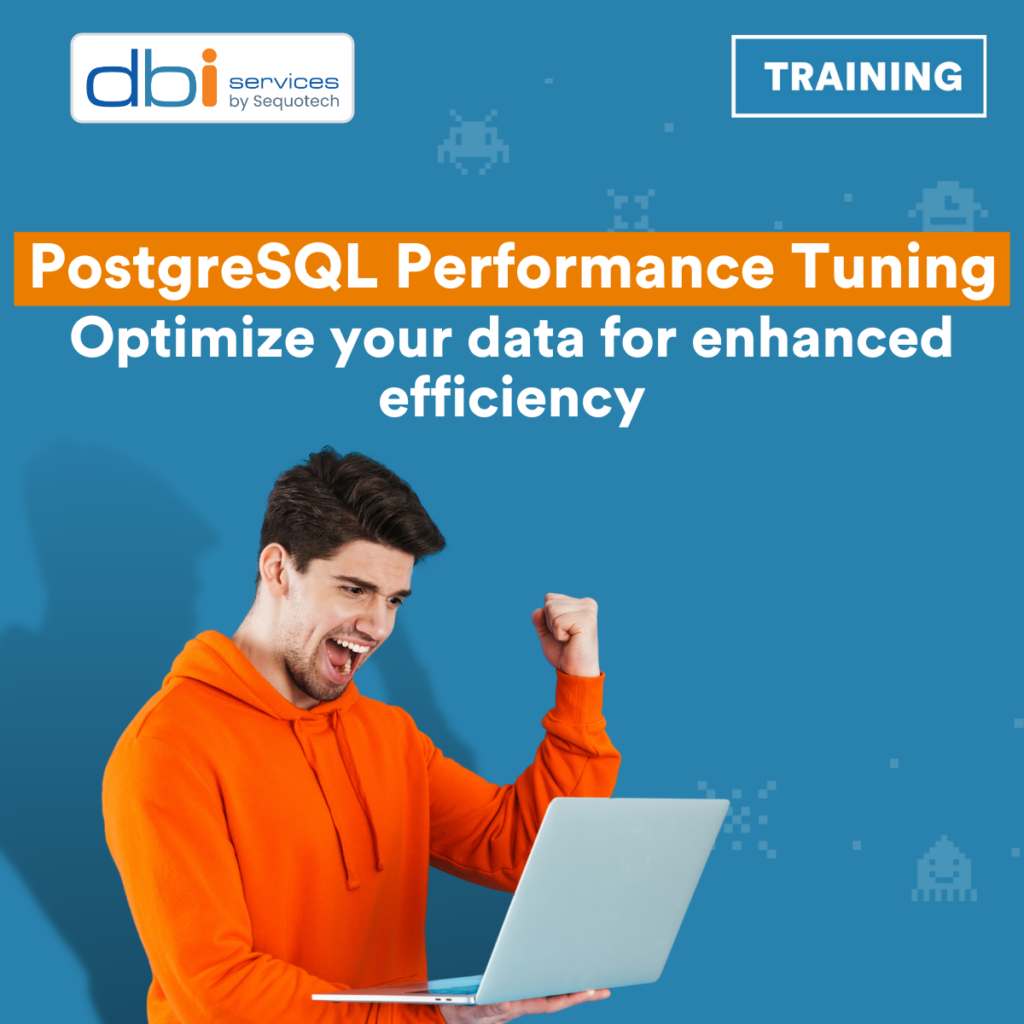Course registration
"*" indicates required fields
PostgreSQL Performance Tuning Training is essential for optimizing database performance and answering critical questions such as: How do I configure my PostgreSQL instance? What indexes should I create? What are the best tools for monitoring PostgreSQL performance? During our PostgreSQL Performance Tuning Training, our experts will share their knowledge, methods, and tools with you. Through practical exercises and demonstrations, you will learn how the PostgreSQL optimizer works and how to maximize its performance. Join us to master the skills needed for effective PostgreSQL performance tuning.

How does PostgreSQL utilize system resources effectively?
PostgreSQL leverages CPU, I/O, and memory resources efficiently. Understanding how these resources are utilized is crucial for configuring your PostgreSQL instance. This section will cover the details of resource management and optimization.
What are the best tools for monitoring PostgreSQL performance?
We will explore standard PostgreSQL tools and extensions designed for performance monitoring.
How do you optimize query performance in PostgreSQL?
This section delves into the techniques for query tuning, including an in-depth explanation of execution plan operations such as sequential scans, index access, and sorts.
What are the different PostgreSQL index types and how should they be used?
Gain a comprehensive understanding of PostgreSQL index types and their specific applications.
How do you configure memory settings for optimal performance?
Learn about memory sizing, including shared_buffers and work_mem, and how to configure these settings to achieve optimal database performance.
Seize this opportunity to enhance your technical expertise and improve the performance of your PostgreSQL databases.
PostgreSQL Performance Tuning will be delivered using a combination of presentations, practical exercises, case studies, and question-oriented demonstrations. You will have the opportunity to practice the skills you learn in the course on a hands-on lab environment.
The PostgreSQL Performance Tuning Performance course provides numerous technical advantages for users:
Participants in this course will receive practical, expert instruction in PostgreSQL performance tuning, enhancing their ability to manage database systems effectively. They will become adept in utilizing PostgreSQL’s features for high availability, scalability, and optimized performance. Additionally, learners will have access to resources and insights from our expert consultants through PostgreSQL-focused blogs and discussions.
For detailed information, refer to the official PostgreSQL documentation.
5% discount for SOUG, SwissPUG and DOAG members.
Trainers
![Thumbnail [150x150]](https://www.dbi-services.com/wp-content/uploads/2022/08/DWE_web-min-scaled.jpg)
Daniel Westermann
Technology Leader & Principal Consultant